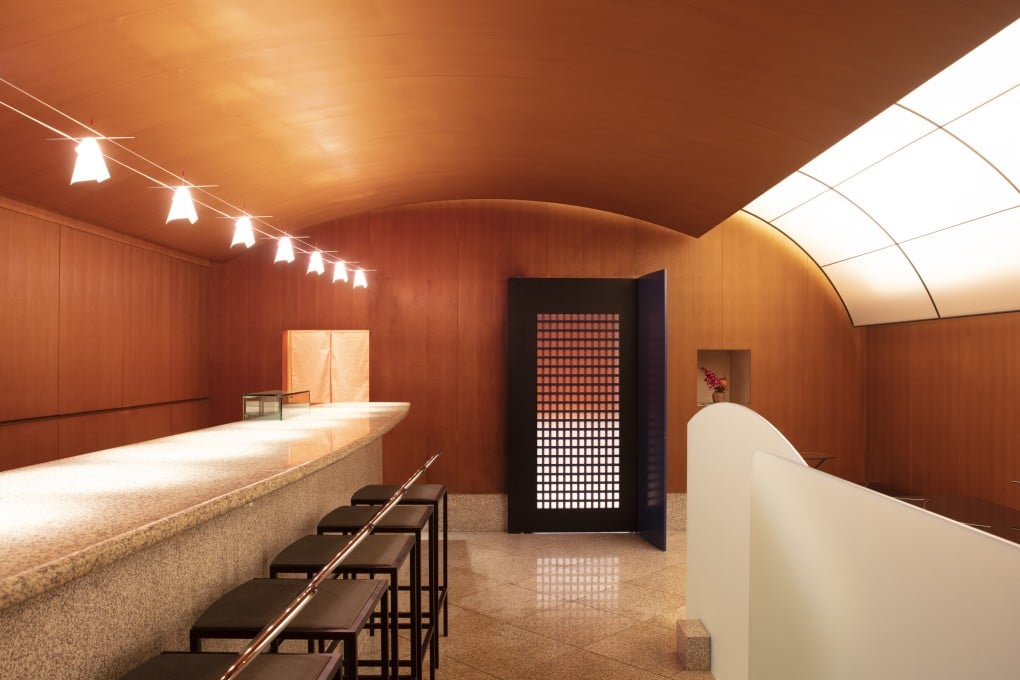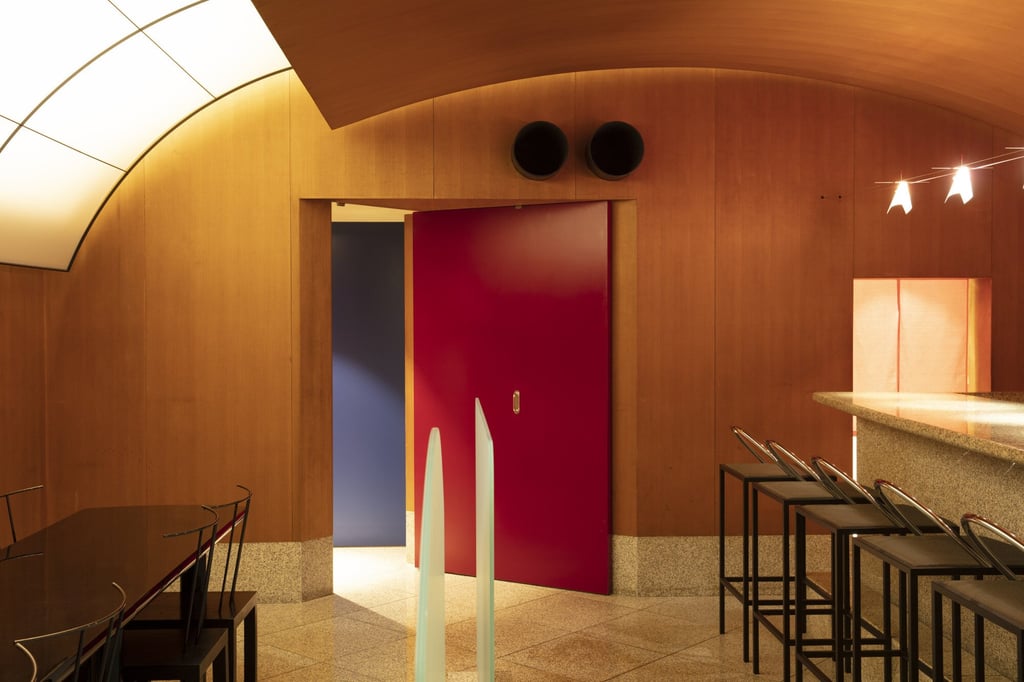Why a Tokyo sushi bar is a star exhibit at M+ museum in Hong Kong, reassembled as testament to the subtle minimalism of its designer
- Full of surprises if you know where to look, Kiyotomo, designed by Japanese architect Shiro Kuramata, shows his perfectionism and ability to create magic

Like most sayonara parties, the convivial gathering on May 28, 2014, in Tokyo’s Shinbashi district was tempered by wistfulness. Forty guests, some of whom had travelled from Hong Kong, mingled with design glitterati to bid farewell to a 26-year-old about to test the waters beyond Japan.
“It was a little bittersweet,” says Aric Chen, then the lead curator of design and architecture for M+. He attended that celebration – with Pritzker Prize laureates Toyo Ito and Arata Isozaki, among other Kuramata fans – before Kiyotomo was dismantled, packed into four shipping containers, and later reconstructed as one of the museum’s prize exhibits.
“There was a bit of sadness, even frustration, that it wasn’t possible to find a way to keep it in Japan,” Chen says. However, mixed with those emotions was a sense of relief. “We had so many people telling us, ‘We’re really happy that you’re able to preserve it.’”

That the sushi bar has been saved as an object to cherish and study, perhaps admire, should delight anyone familiar with other interiors and large-scale architectural installations collected by museums such as the Victoria and Albert museum in London and New York’s museum of Modern Art. In 2012, MoMA installed a then 60-year-old kitchen by architects Charlotte Perriand and Le Corbusier from Marseilles’ Unité d’Habitation housing development, Corbu’s “machine for living in”.
Still, the M+ purchase was not a slam dunk. If even now the idea takes time to sink in for the uninitiated, it should come as no surprise that the plan was perplexing when first revealed. But any questions about why Kiyotomo is special were always to be expected, according to Chen, who says of the museum’s intention: “We wanted people to stop and ask, ‘Why is a sushi bar here?’”
